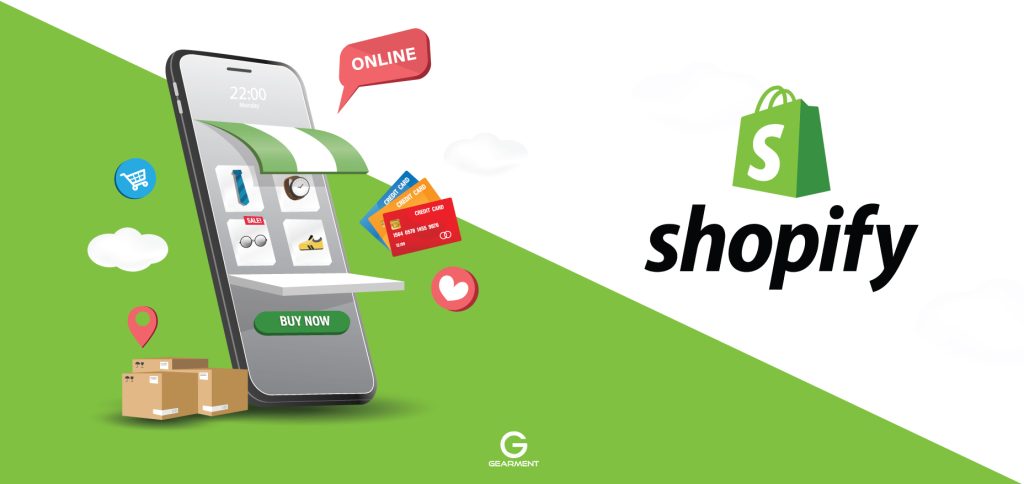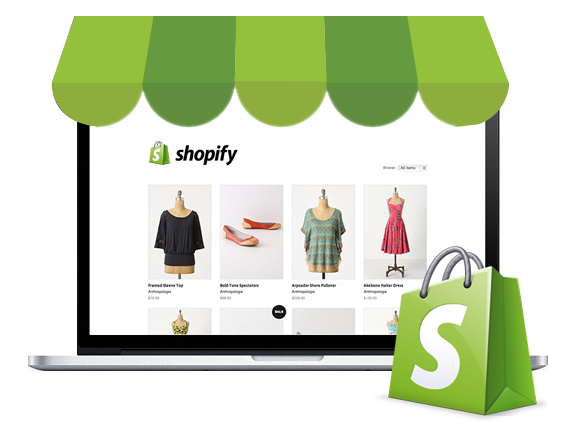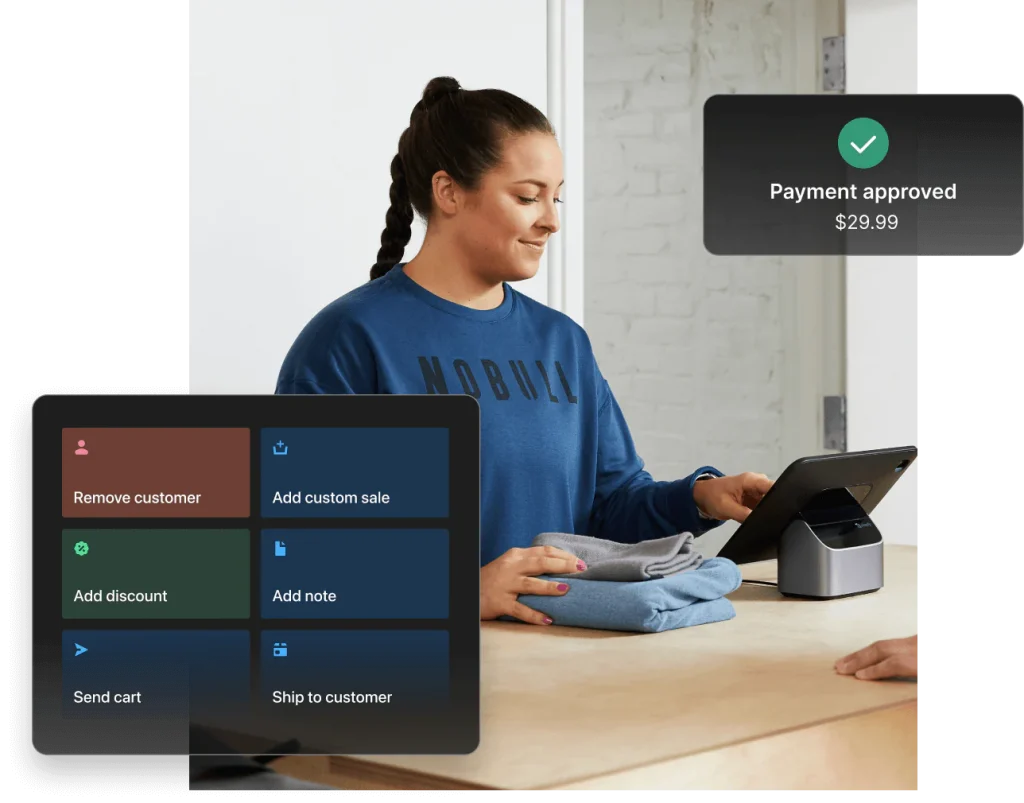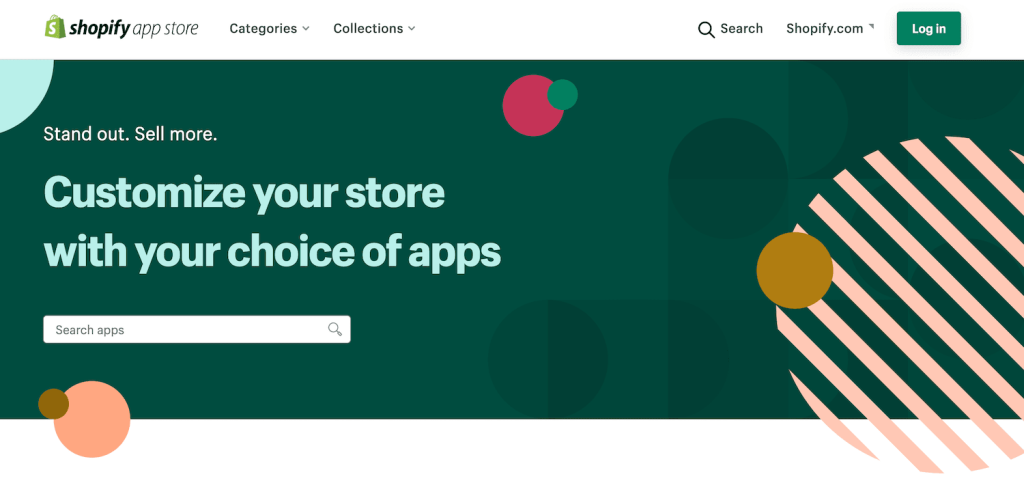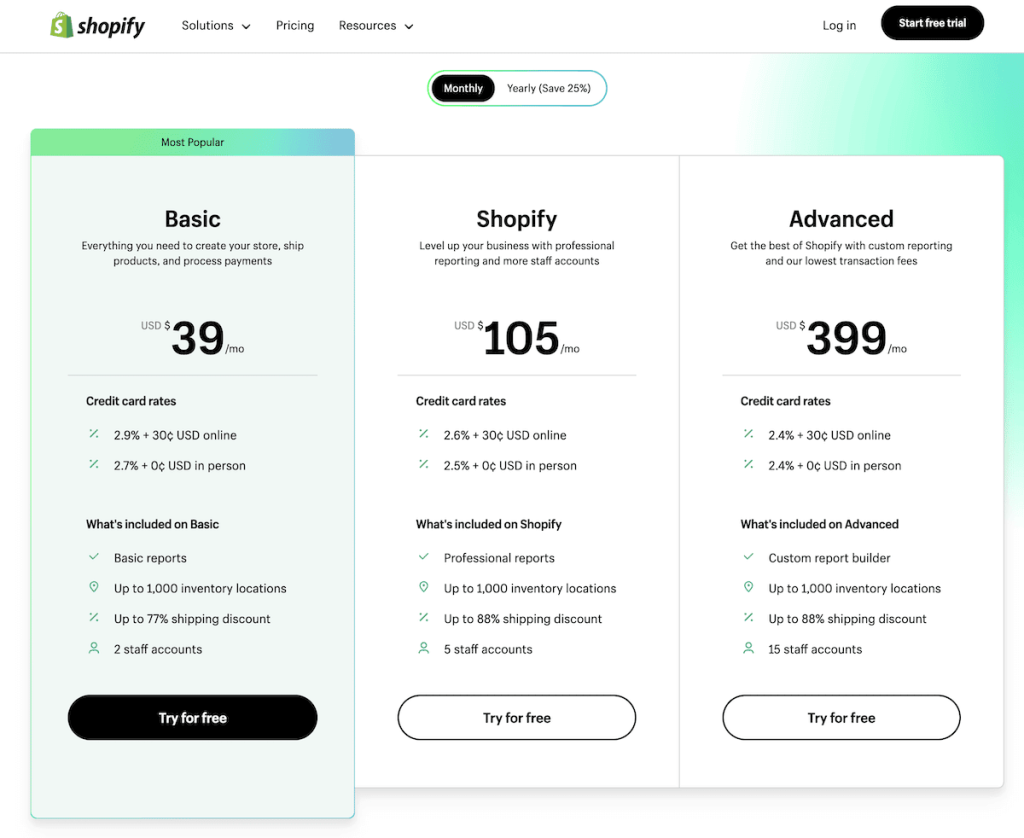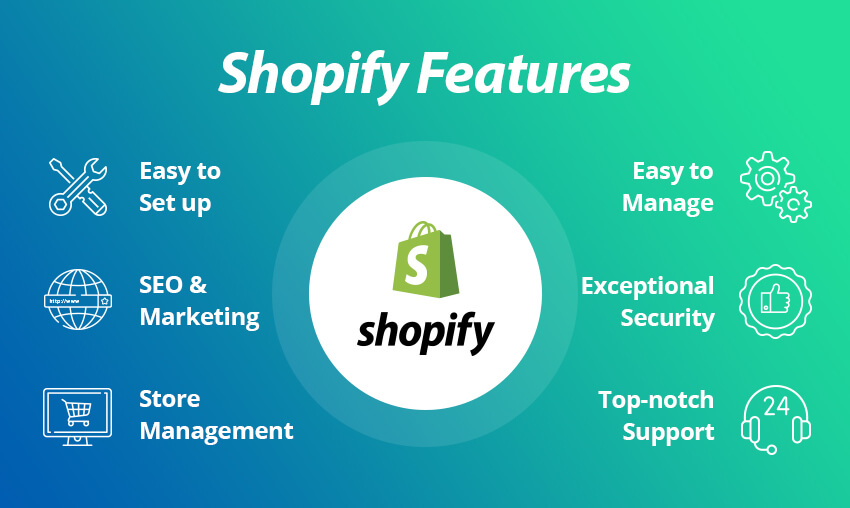Introduction to Shopify
Shopify, a leading global commerce company, was founded in 2006 by Tobias Lütke, Daniel Weinand, and Scott Lake. The inception of Shopify occurred after the founders, initially aiming to open an online snowboard store, became frustrated with the available e-commerce software. They decided to create their own platform tailored to the needs of online merchants. Today, Shopify provides businesses of all sizes with a robust platform to set up, manage, and scale their online and offline commerce.
The Vision Behind Shopify
The vision behind Shopify was to make commerce better for everyone. The founders aimed to lower the barriers to business entry, allowing anyone with a product to sell it online with ease. This democratization of commerce has enabled countless entrepreneurs to start and grow their businesses without the need for significant upfront investments in technology. Shopify’s core mission focuses on simplifying the process of selling online, through multiple channels, and in various locales, all while providing a seamless user experience.
Shopify’s Unique Personality
Shopify’s personality is characterized by its entrepreneurial spirit and commitment to customer empowerment. The platform is designed to be approachable, user-friendly, and innovative, reflecting the company’s philosophy of constant improvement and accessibility. Shopify stands out for its dedication to providing value through comprehensive support resources, extensive app integrations, and a community-driven approach. This ensures that users, whether they are budding entrepreneurs or established businesses, find a supportive ecosystem to thrive in.
Market Presence and Achievements
In the U.S. market and globally, Shopify has made a significant impact. As of now, Shopify supports over 1.7 million businesses across more than 175 countries. Its platform is responsible for a substantial portion of e-commerce traffic, rivaling giants like Amazon and eBay. Notably, Shopify’s achievements include handling billions of dollars in transactions, showcasing its robust infrastructure and trustworthiness. The company’s adaptability has also been demonstrated through its responses to market demands, such as integrating advanced technologies like AR and AI to enhance the shopping experience.
Shopify has not only expanded its services to cover nearly every aspect of commerce, from payments and marketing to shipping and customer engagement but has also cultivated a marketplace ecosystem that fosters innovation through third-party developers. This approach has allowed Shopify to remain at the forefront of the e-commerce industry, continuously evolving to meet the changing needs of sellers and buyers alike.
Features & Services at Shopify
Shopify offers a comprehensive suite of features and services designed to support businesses at every stage of their growth. Here’s a detailed look at some of the key features and services available on the Shopify platform:
Storefront Customization
Shopify provides a highly customizable storefront, allowing users to choose from a wide range of themes that are both responsive and mobile-friendly. Merchants can customize their sites without needing to know how to code, though there is also extensive flexibility for those with web development skills to further tailor their stores using Shopify’s Liquid templating language.
Shopping Cart and Checkout
The platform includes a secure shopping cart that supports over 100 payment gateways, including Shopify Payments, which simplifies the process by eliminating third-party fees and hurdles. The checkout process is optimized for speed and user experience, supporting features like automatic shipping rate calculation, tax calculations, and abandoned cart recovery to boost sales conversion rates.
Marketing and SEO Tools
Shopify provides a variety of marketing tools that help businesses attract customers. These include options for creating discount codes and gift cards, implementing targeted email marketing campaigns, and selling directly on social media platforms. The platform also supports SEO best practices like customizable headlines, titles, and meta tags to help improve the visibility of online stores in search engine results.
Store Management
Shopify’s back-end interface includes tools for inventory management, order processing, and customer data insights. Merchants can manage their products, track stock levels, and organize products with tags and categories. The platform also offers detailed analytics that helps merchants understand customer preferences and behaviors, which can guide marketing and sales strategies.
Mobile Management
With the Shopify mobile app, merchants can manage their online store from anywhere. This includes processing orders, updating product listings, and responding to customer inquiries. The app ensures that managing an e-commerce store can remain flexible and accessible.
Apps and Integrations
Shopify’s App Store extends the functionality of the platform significantly. With over 6,000 apps available, merchants can enhance their stores in virtually every way imaginable—from advanced customer service tools like live chat to marketing automation and shipping logistics integration.
Shopify POS
Shopify POS (Point of Sale) integrates physical sales with online inventory. This is particularly useful for businesses that operate both brick-and-mortar stores and online storefronts. It simplifies the management of sales and inventory across multiple channels, ensuring consistency and real-time data accuracy.
Shipping and Fulfillment
Shopify streamlines the shipping process by integrating with various carriers to provide real-time shipping rates and printable shipping labels directly from the dashboard. Shopify also offers its own fulfillment network, Shopify Fulfillment Network, which leverages machine learning to ensure timely deliveries and lower shipping costs.
Payment Processing
Through Shopify Payments, merchants can accept credit cards directly at competitive rates, without having to integrate third-party payment providers. This service simplifies the payment process, providing faster payouts and integrated chargeback management.
International Commerce
Shopify supports multi-language stores and adjusts currency and tax calculations based on the customer’s location, facilitating global sales. It also offers localized payment methods to improve the checkout experience for international customers.
These features collectively make Shopify a robust, versatile platform for e-commerce, catering to a wide array of business needs and scaling as companies grow. Whether a small startup or a large enterprise, Shopify offers the tools necessary for businesses to succeed online.
How is Shopify Different!
Shopify distinguishes itself from competitors in the e-commerce platform market through several unique selling propositions and key differentiators. Here’s how Shopify stands out:
1. Ease of Use
Shopify is renowned for its user-friendly interface, designed to be accessible for users regardless of their technical skill level. From setting up an online store to managing inventory, the entire process is streamlined and intuitive. This simplicity is a significant advantage over more complex platforms like Magento, which often require more technical expertise.
2. Integrated Payment Solution
Shopify Payments, Shopify’s own payment gateway, integrates directly into user stores, offering simplified billing and payment processing. This feature eliminates the hassle of setting up third-party payment gateways and reduces additional transaction fees that platforms like WooCommerce might incur when integrating external payment systems.
3. Extensive App Marketplace
Shopify’s App Store is one of the most extensive in the e-commerce industry, with thousands of apps that allow merchants to add custom functions to their stores without extensive coding. This vast range of plugins and apps provides functionality that can be tailored to nearly any business need, which is a significant advantage over platforms like BigCommerce, which has fewer third-party applications.
4. Omnichannel Selling
Shopify excels in omnichannel retailing, allowing users to sell not just through their websites but also across multiple platforms like Facebook, Instagram, eBay, and Amazon. Additionally, Shopify POS integrates offline and online sales effortlessly, a feature that is more cohesive and developed than competitors like Squarespace or Wix.
5. Scalability
Shopify supports businesses as they grow from small startups to large enterprises without the need for platform migration. Shopify Plus, the enterprise-level solution, offers advanced features such as higher API call limits, dedicated support, and capacity to handle higher order volumes, which is a contrast to platforms like Volusion, known to struggle with scalability issues.
6. Shopify Fulfillment Network
Unique among its competitors, Shopify offers a fulfillment service that uses machine learning to ensure timely shipping and delivery. This service competes directly with Amazon’s FBA but is unique in how it integrates directly with the e-commerce platform, providing a seamless fulfillment solution that is rare among other platforms.
7. Global Reach
Shopify supports multiple languages, currencies, and tax systems, making it an excellent platform for international e-commerce. This global functionality is more seamlessly integrated than on platforms like Wix, where multi-currency and multilingual capabilities might not be as robust.
8. Strong Community and Support
Shopify has a vast community of developers, designers, and e-commerce experts who continually contribute to its ecosystem. This community, along with Shopify’s 24/7 customer support, provides an invaluable resource for merchants that is often more comprehensive than what’s available through competitors like BigCommerce or PrestaShop.
These unique selling propositions ensure that Shopify remains a preferred choice for merchants looking for a robust, scalable, and user-friendly e-commerce platform. Its commitment to providing a comprehensive suite of tools that cater to businesses at any stage of growth helps it maintain a competitive edge in the rapidly evolving e-commerce landscape
Service Packages:
Shopify offers several pricing plans tailored to meet the needs of different businesses, from small startups to large enterprises. As of my last update, here are the main pricing tiers for Shopify’s services:
Basic Shopify
- Price: $39/month
- Features: This plan includes all the basics for starting a new business. It provides two staff accounts, unlimited products, 24/7 support, sales channels, manual order creation, discount codes, free SSL certificate, and abandoned cart recovery.
Shopify
- Price: $105/month
- Features: Ideal for growing businesses, this plan includes everything in the Basic plan plus five staff accounts, professional reports, and better rates for shipping and payment processing.
Advanced Shopify
- Price: $399/month
- Features: Best for scaling businesses that require advanced reporting. This plan offers everything in the Shopify plan, plus fifteen staff accounts, advanced report builder, and third-party calculated shipping rates.
Shopify Plus
- Price: Starting at $2,000/month
- Features: Shopify Plus is designed for high-volume merchants and large businesses. This enterprise solution offers advanced features like higher API call limits, dedicated support teams, capacity to handle higher order volumes, and customization through Shopify’s Liquid language. Pricing can vary based on the specific needs and scale of the business.
Additional Services:
- Shopify POS: Integrated point of sale to unify online and in-store sales.
- Shopify Payments: Included in all plans but requires no additional transaction fee if used; other payment gateways may incur additional fees.
- Domain Names: Domains can be purchased through Shopify, starting around $14/year.
- Apps and Integrations: Costs can vary widely depending on the functionality provided by third-party apps in the Shopify App Store.
These pricing plans do not include the cost of any third-party apps, themes, or additional customizations that a store owner might want to use. Pricing and features can vary and should be checked directly on Shopify’s website for the most current information.
Shopify is for All!
Shopify is designed to cater to a broad spectrum of users, ranging from solo entrepreneurs to large enterprises. Here’s a breakdown of who can benefit from using Shopify and how:
1. Entrepreneurs and Small Businesses
Individuals and small business owners who are looking to start an online store will find Shopify especially beneficial. The platform is user-friendly, requiring no prior coding or technical skills to set up and manage a store. With affordable pricing plans and a wide array of customizable templates, it allows small businesses to launch a professional-looking online store with minimal upfront investment.
2. Growing Businesses
As businesses expand, they require more sophisticated tools for inventory management, marketing, and customer service. Shopify’s various plans accommodate growing demands with features like professional reports, improved shipping discounts, and better transaction rates. Additionally, the availability of numerous apps and integrations means that as business needs become more complex, Shopify’s functionalities can expand to meet these requirements.
3. Brick-and-Mortar Stores
Physical retailers looking to establish or expand their online presence can benefit greatly from Shopify, particularly through Shopify POS. This system integrates in-store sales with the online store, enabling seamless inventory management across both channels. It helps physical stores broaden their reach online while maintaining a unified management system.
4. Dropshipping Businesses
Shopify is highly popular among dropshippers due to its integration capabilities with dropshipping platforms like Oberlo (specifically designed for Shopify), Printful, and others. These integrations allow merchants to easily import and manage inventory and orders without needing to stock products themselves.
5. Artists and Creatives
Artists, musicians, and writers who want to sell their work or merchandise can use Shopify to create a boutique store. Its easy customization helps showcase creative products in a unique and personal way, while its e-commerce tools handle the sales, shipping, and taxes.
6. Non-Profit Organizations
Non-profits can use Shopify to manage donations, sell merchandise, and run fundraising campaigns. The platform’s ease of use allows non-profits to focus more on their mission rather than on managing their online presence.
7. International Brands
For businesses looking to sell globally, Shopify supports multiple currencies, languages, and tax systems, making it easier to reach customers worldwide. Shopify Plus, in particular, offers enhanced features for handling high volume transactions and international sales at scale.
8. Marketplaces and Large Enterprises
Shopify Plus is suited for large businesses that need a robust, scalable platform capable of handling a high volume of transactions and complex operations. It offers advanced features like API integration, dedicated support, and enhanced security options.
Shopify’s flexibility, scalability, and wide range of features make it a suitable platform for various types of users across different industries and business sizes. Its ability to adapt to different business models and its extensive app ecosystem allows virtually any business to tailor the platform to fit their specific needs.
Technology Made is with Shopify!
No need to be tech-savvy to use Shopify! It’s designed with simplicity in mind, ensuring that anyone can set up and manage their online store without technical expertise. Here’s how Shopify makes this possible:
Intuitive Interface
Shopify provides a straightforward and clear interface. It guides you through setting up your store step by step, so managing your products, promotions, and sales is easy and hassle-free.
Drag-and-Drop Builder
You can customize the look of your store with Shopify’s drag-and-drop builder. This tool lets you choose from a variety of themes and easily place elements exactly where you want them, all without touching a single line of code.
24/7 Support and Learning Resources
If you ever need help, Shopify has round-the-clock customer support available through phone, email, or live chat. Plus, there’s a vast array of tutorials, forums, and guides that provide helpful tips on making the most of your Shopify store.
App Integrations
For those looking to enhance their store with more features, the Shopify App Store offers numerous apps and plugins. These are simple to integrate and use, often coming with their dedicated support to help you with any questions.
Customizable Themes
Shopify’s themes are ready to use right away and come with graphical settings for easy tweaks. If you ever wish to explore deeper customization, you have the option to modify HTML and CSS, but this is completely optional.
In short, Shopify is built for everyone, not just those with technical skills. Its tools and resources are focused on helping you concentrate on growing your business, making it a top choice for entrepreneurs and businesses of all sizes.
Conclusion:
In conclusion, Shopify stands out as an exceptionally user-friendly e-commerce platform that is ideal for individuals, entrepreneurs, and businesses of all sizes. Its intuitive design, comprehensive support, and rich array of features ensure that anyone can launch and manage an online store successfully, regardless of their technical expertise. With its scalable solutions, from basic setups for new businesses to advanced functionalities for large enterprises, Shopify empowers users to focus on what matters most—growing their business. Whether you’re looking to start a new venture, expand your physical store online, or scale a global enterprise, Shopify provides the tools and resources to achieve your goals with ease. It’s clear that Shopify is not just about selling products; it’s about making the entrepreneurial journey simpler, more enjoyable, and accessible to anyone with a vision for a business.
